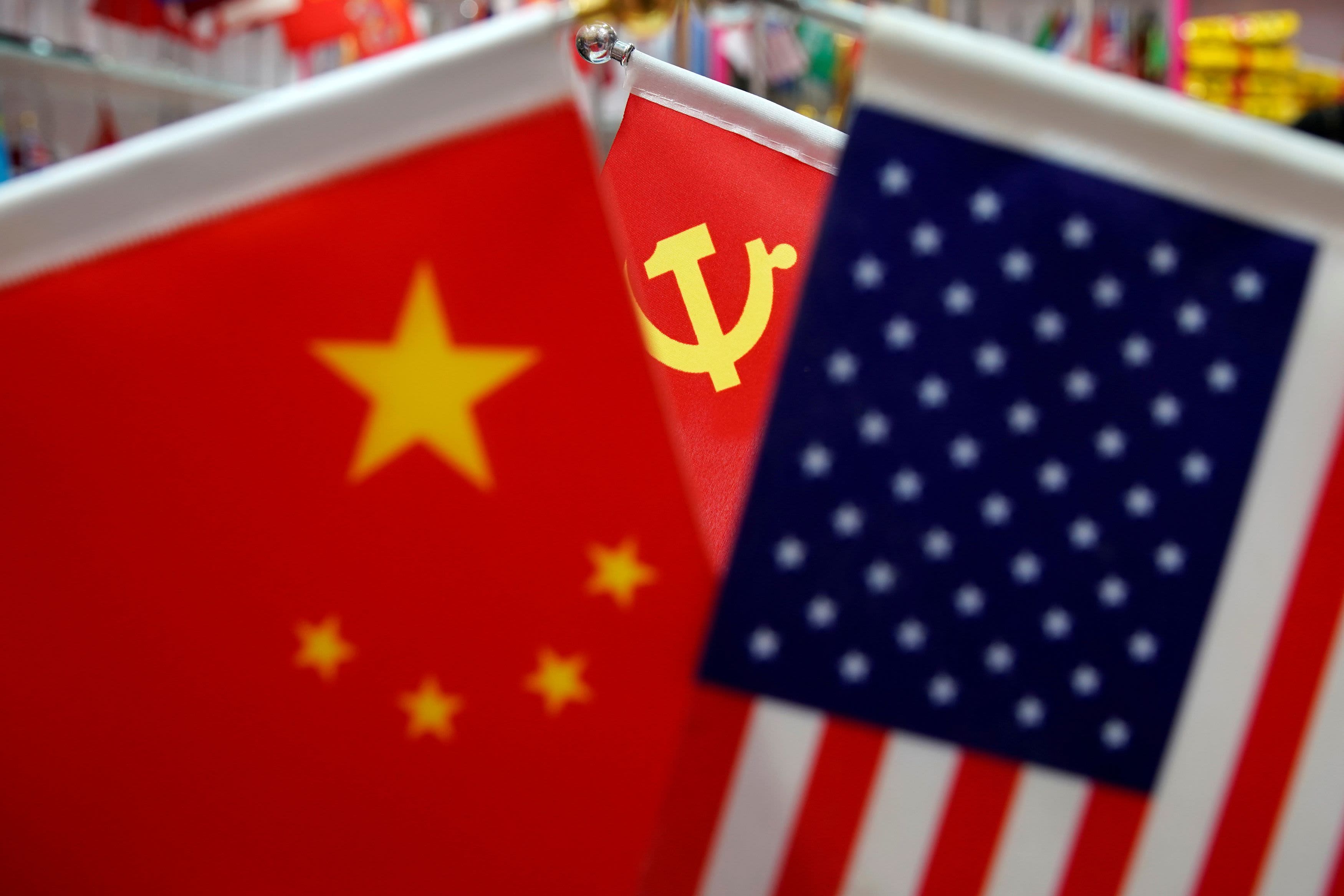
The flags of China, U.S. and the Chinese Communist Party are displayed in a flag stall at the Yiwu Wholesale Market in Yiwu, Zhejiang province, China, May 10, 2019.
Aly Song | Reuters
BEIJING — China’s Vice Foreign Minister Le Yucheng said Thursday he hopes the next U.S. administration will take steps to work with the Asian country.
As the world waits for news on who will become the next U.S. president, Le said he hoped the election would proceed stably and smoothly. That’s according to a CNBC translation of a Chinese state media report about Le’s remarks Thursday at a press conference about an unrelated upcoming summit.
“The Chinese attitude on China-U.S. relations is clear and consistent,” the report said, citing Le. “Although there are disagreements between China and the U.S., there is vast room for mutual benefit and cooperation. (I) hope the new U.S. administration will meet China halfway.”
That approach would include “upholding a principle of no conflict, no confrontation, mutual respect and win-win cooperation,” Le said, according to the report.
The world’s two largest economies have been locked in escalating tensions over the last two years, beginning with trade and spilling over into technology and geopolitics.
Analysts expect U.S. policy on China will stick to a more stringent tone, regardless of which candidate wins.
“The truth of the matter is that being tough on China is what unifies us in a polarized nation right now,” former top White House trade negotiator Clete Willems told CNBC’s “Squawk Box Asia” on Thursday. “We’re polarized in our politics but we are not polarized on China.”
While U.S. presidential election polls have already closed, vote counting is expected to continue over the coming days. As of Thursday afternoon, it was still not clear whether U.S. President Donald Trump would win reelection, or whether Democratic nominee Joe Biden would become the next president.
Analysts have pointed out that a Biden administration would likely draw American allies together to form a more unified strategy against Beijing than the Trump administration has.
On Wednesday evening, Chinese President Xi Jinping said in a key speech that his country would speed up trade talks with the EU, Japan and South Korea, without mentioning the U.S.
“China is keen to secure additional (free-trade agreements) as part of its broader goal to diversify its sources of imports, especially for strategically important goods like core technologies, energy and food,” Imogen Page-Jarrett, research analyst for China at The Economist Intelligence Unit (The EIU), said in a statement.
“Rising geopolitical friction with the US (and other western countries) could mean that that country cuts off China’s access to certain goods in the future,” Page-Jarrett said.
Muted official talk about the election
In contrast to Le’s remarks, Chinese-language state media have been relatively muted on the U.S. presidential election, amid rapt attention from many social media users and privately run media outlets.
Many posts and articles on the ubiquitous messaging app WeChat focused on the election, while hashtags for Trump’s win in Florida and his first two tweets since Election Day were among the top 25 trending on Twitter-like platform Weibo on Wednesday.
In an English-language editorial published late Wednesday by international-facing state-run newspaper China Daily, the authors said the election marked an “opportunity” for the U.S. to change its policy on China. “It should not be squandered,” the editorial said.
The more outspoken state-run tabloid Global Times published English-language articles late Wednesday that tried to paint recent unrest in the U.S. as issues that “contradict democratic values” and called out “failed elite media mentality” in the U.S. for “misleading polls” that “distort reality.”
Widely followed Global Times Editor-in-Chief Hu Xijin wrote in a Chinese-language article Thursday that Biden’s gains, particularly in Michigan, mean Trump will soon face a difficult choice of whether to admit defeat, or dispute the result.
— CNBC’s Saheli Roy Choudhury contributed to this report.




